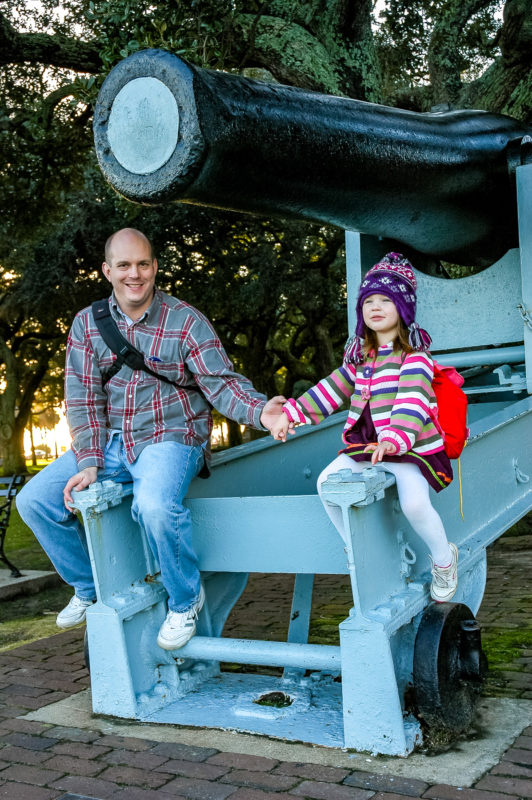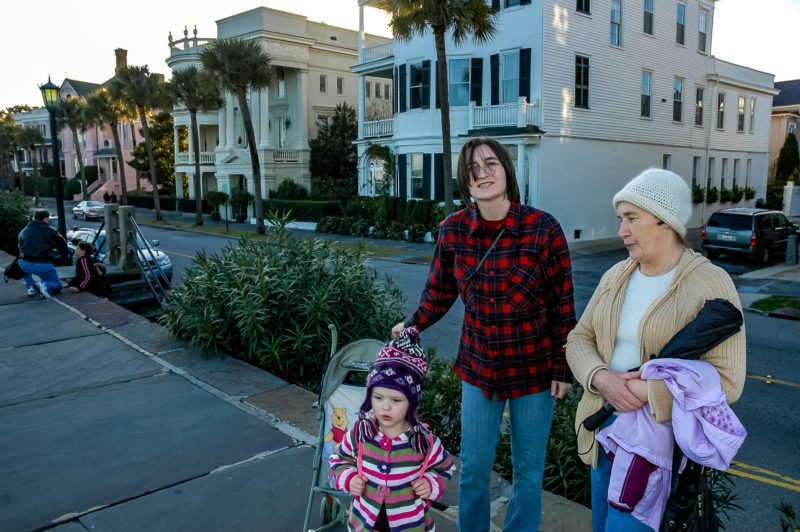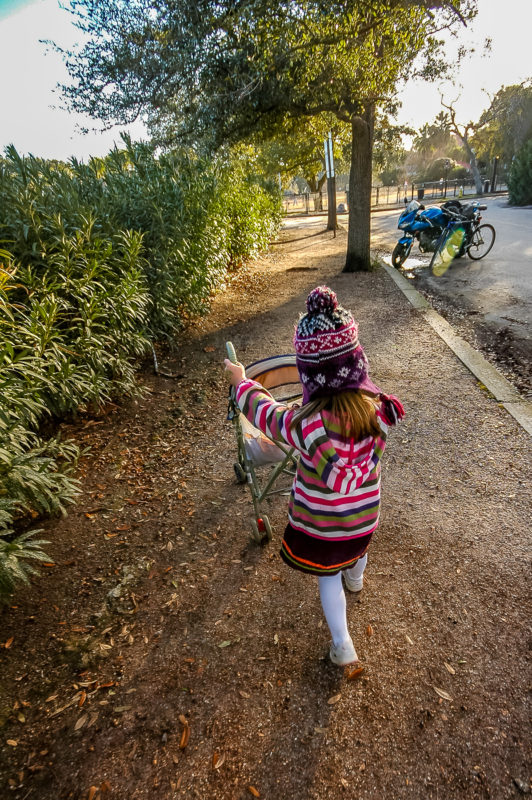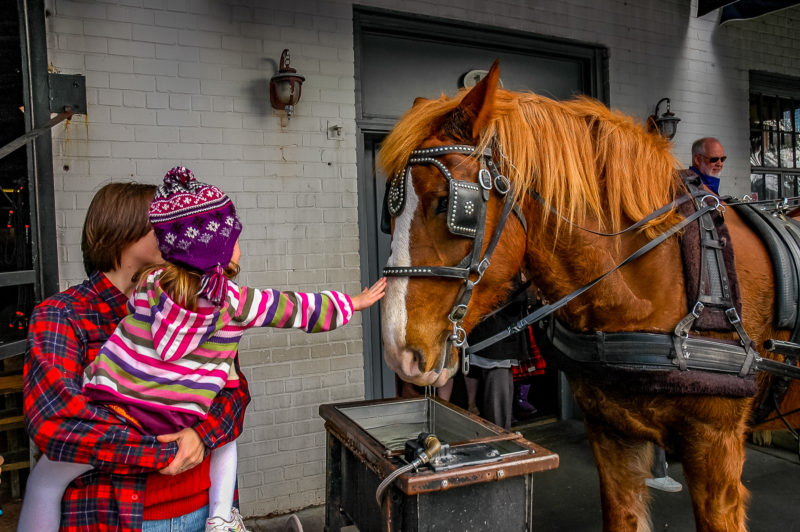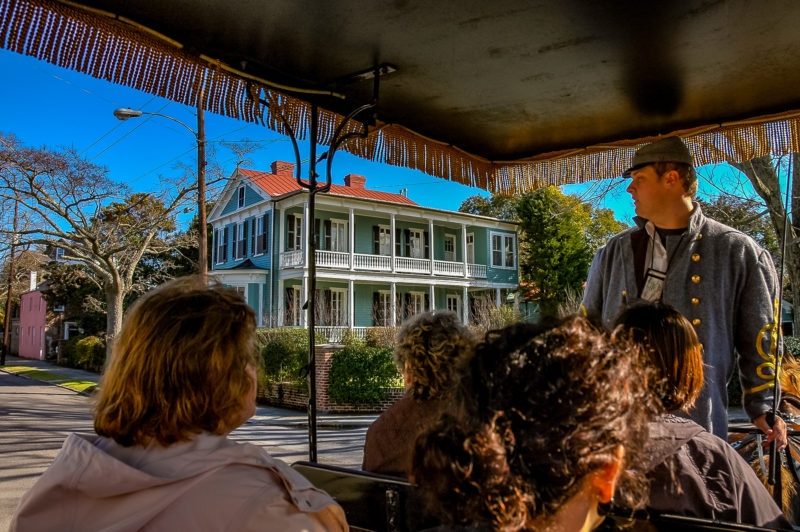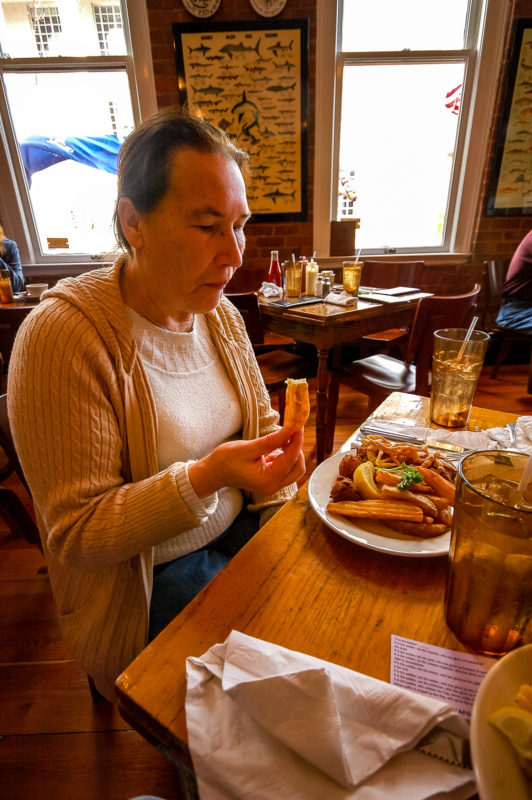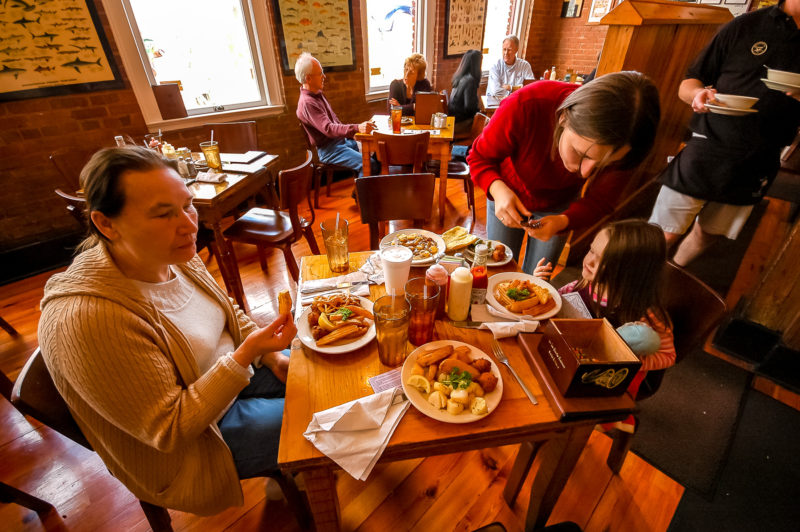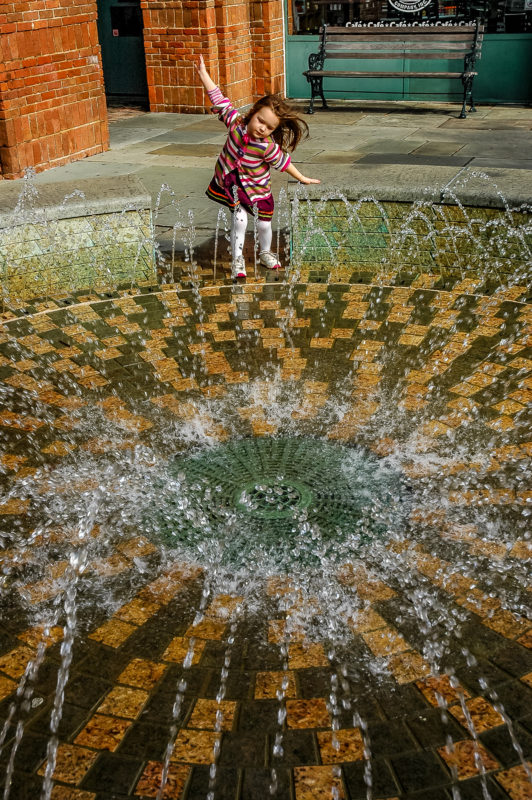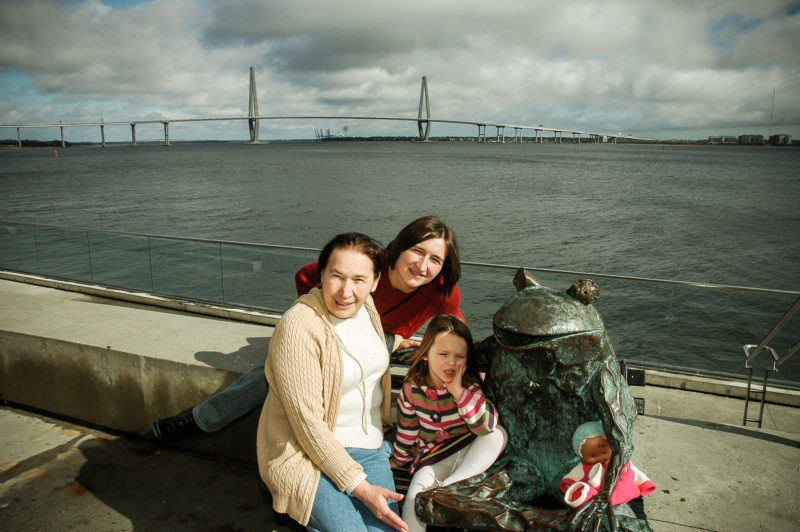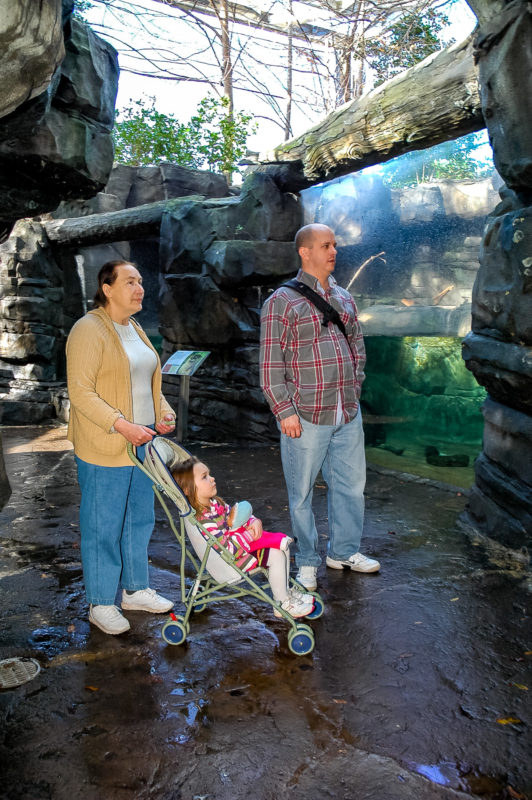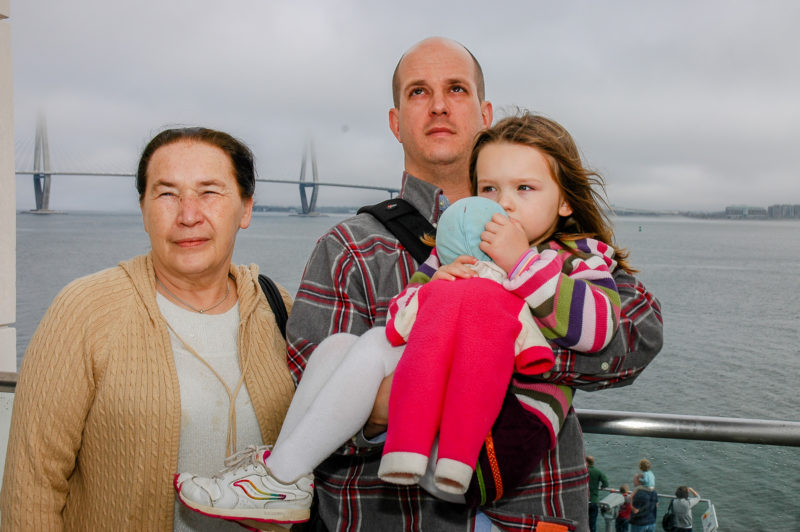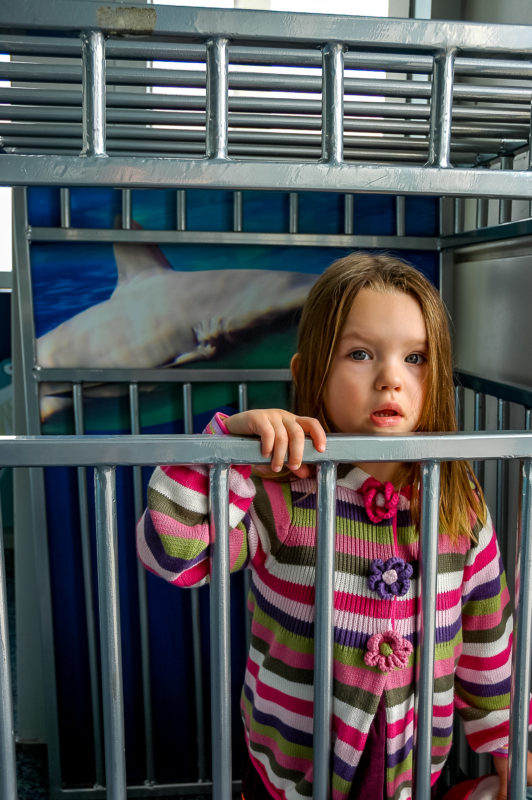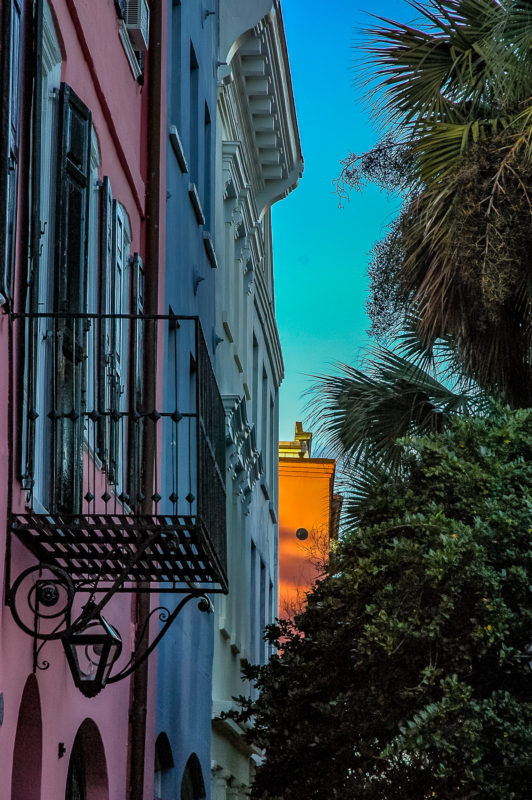There are two parts of downtown Charleston, according to tour guides. It’s not a question of “The Haves” and “The Have-Nots” but rather “The Haves” and “The Have-a-Hell-of-a-Lot-Mores.” That’s where the houses along the battery lie.
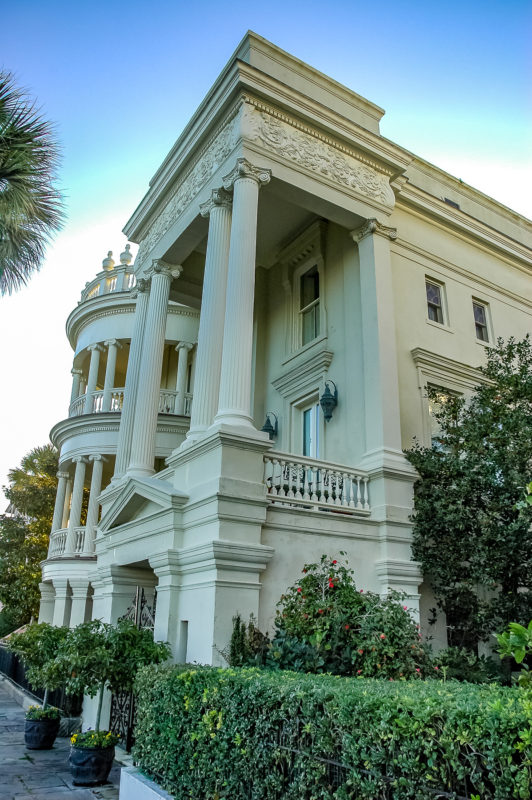
After all, who else could pay the property taxes of such houses? The annual rate for most of these houses equals a solidly middle-class salary.
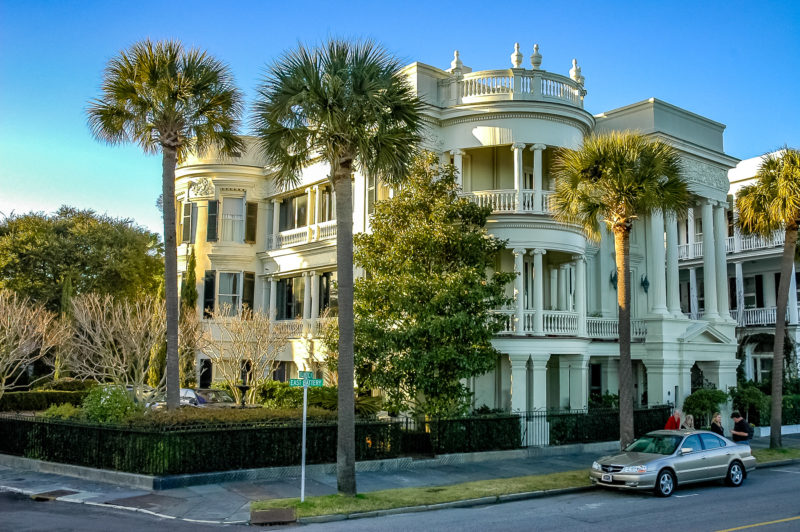
If driving a $100k Mercedes is a conspicuous sign of wealth, these houses make tourists scratch their heads in wonder. “Who could afford such a house?” we ask. Apparently, plenty of people.
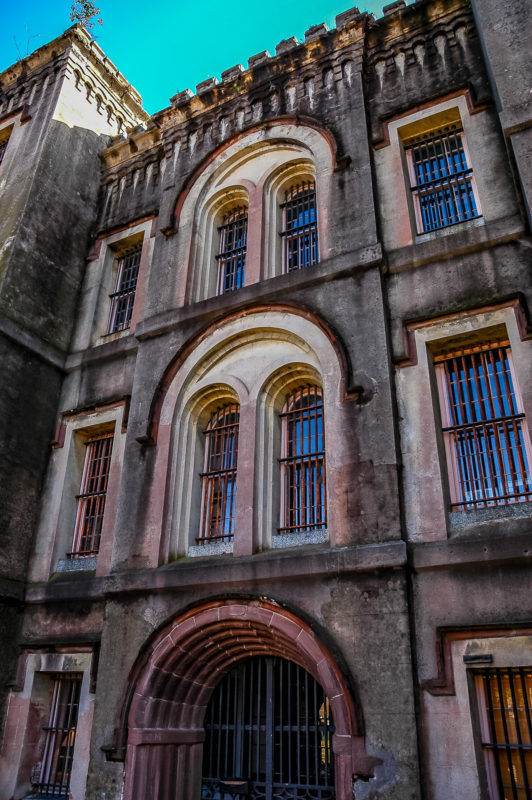
Just a few blocks away is the prison. It closed in the 1940s, never having had electricity or running water. The last execution was in the 1930s: the state had changed its method of execution to the electric chair, and having no power, the Charleston prison was unable to continue executing criminals.
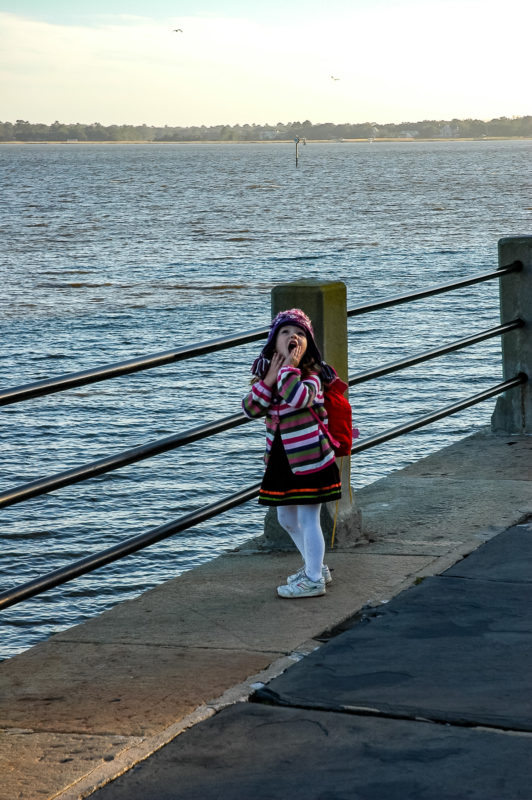
The Girl was impressed, but more so with the birds that were flying around her
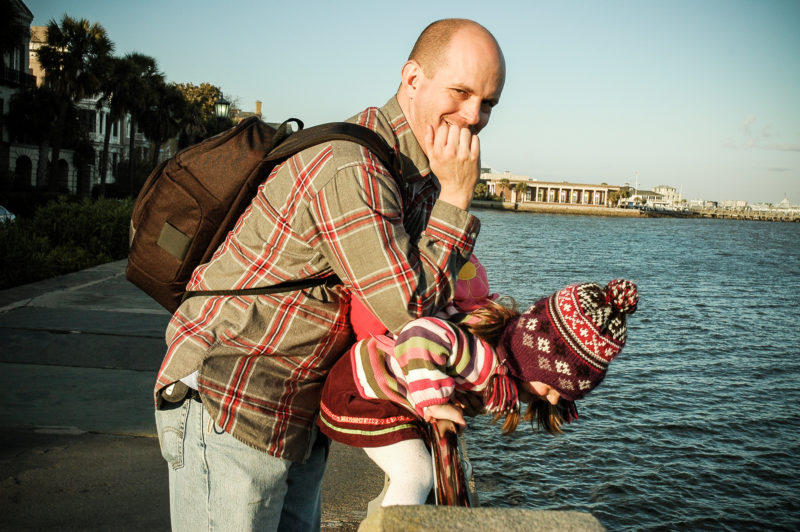
and the waves splashing below us. We weaved among the tourists, and on one occasion became an object of tourist fascination: an Asian couple saw L marching down the street, giggled, and took a quick picture. A local, out walking his dog, observed that L was “all wrapped up” and thus “cute as a button.”
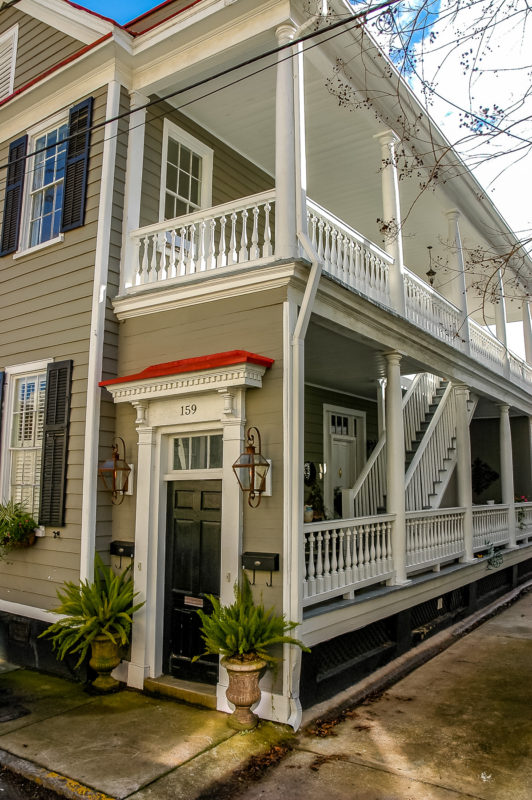
We continued on our way, though it was difficult not to look up. It’s not quite like being in a Gothic cathedral or Manhattan, but the impulse too look upward is undeniable.
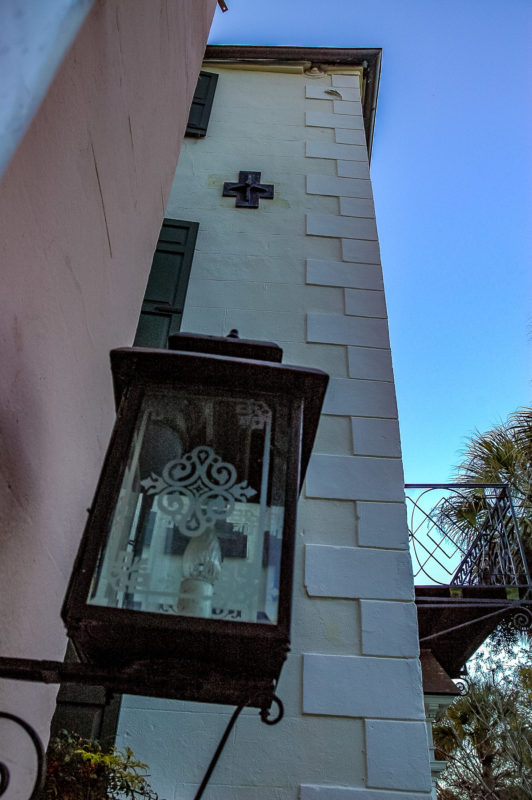
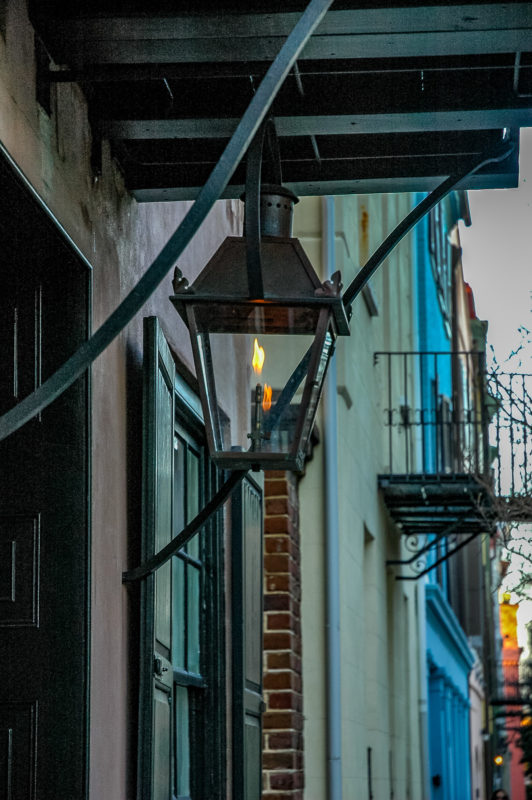
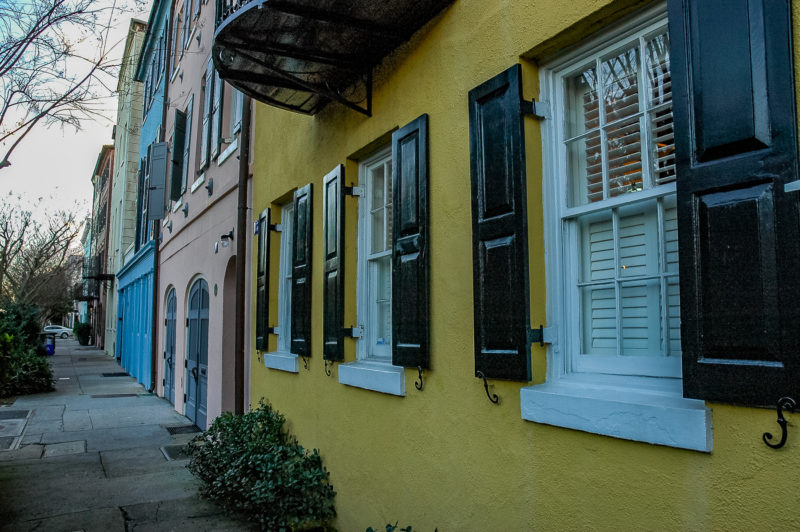
And look back: I noticed a placard announcing that we were in “Rainbow Row” and it struck me: “All the houses we’ve passed have been different colors.” It made me wonder if there is a similar tract in San Francisco.
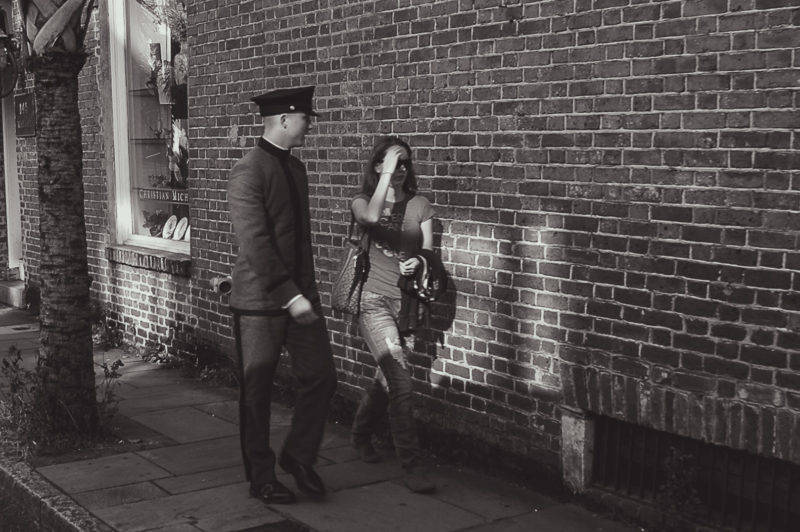
The rest of Charleston went about its usual business. Cadets from the Citadel were out, walking in packs, strolling with their girlfriends, or harassing random girls (at least that’s what some of my captures look like).
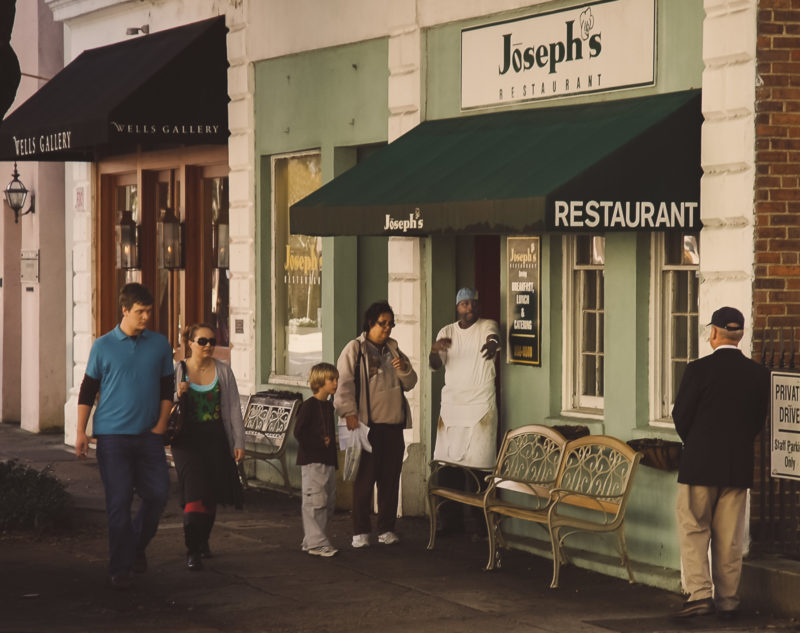
Locals stood talking.
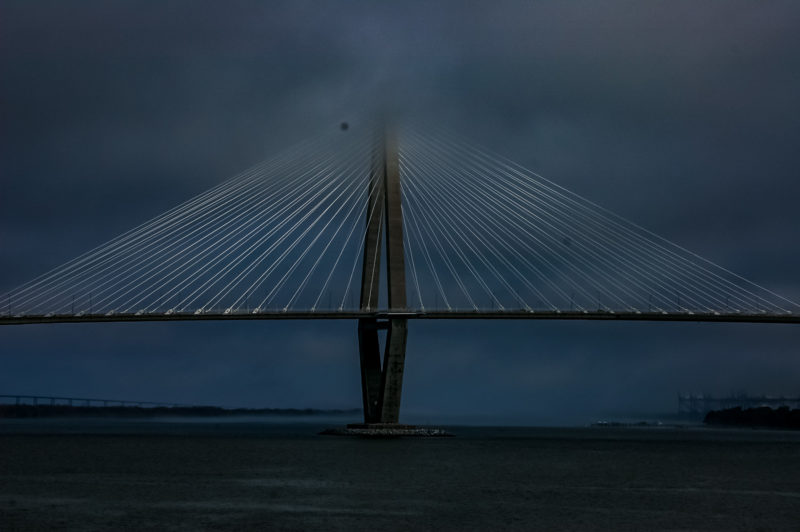
And everyone made their way here and there on a lazy Sunday.
